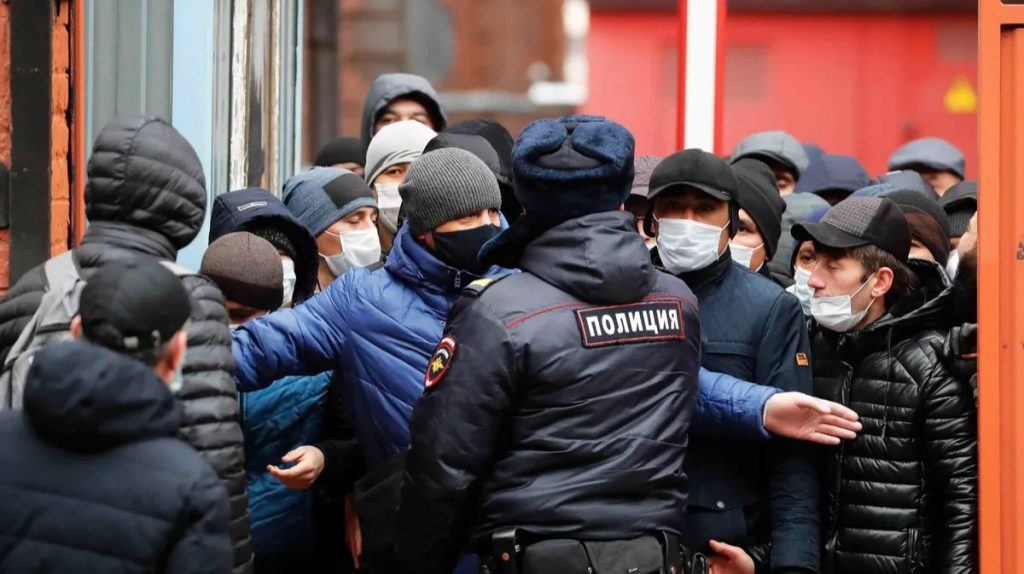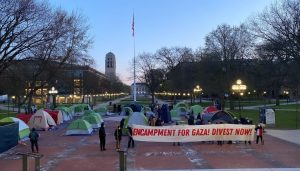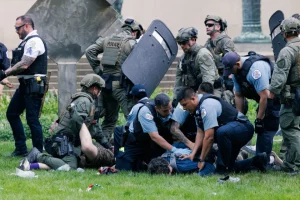A devastating terrorist attack took place in Moscow on March 22, taking the lives of 140 people and leaving more than 300 injured. The numbers are growing, and as I write this, new victims are being discovered. Crocus City Hall, a concert venue, has a capacity of 6,200 seats, and the rock concert that evening was sold out. The terrorists escaped, but police soon arrested four men accused of carrying out the attack, as well as three others accused of supporting them by providing a car, renting out an apartment, and transferring their money. The arrested are of Tajik and Kyrgiz origin.
Since that night, non-Russian people all across Russia have been facing racist violence. Taxi drivers have had orders canceled with the comment: “I won’t ride with a Tajik.” Police have been investigating “people of oriental appearance.” A Tajik woman business owner has been receiving threats. A group of men surrounded a Yakut woman in the Moscow metro and shouted “Russia is for Russians!” The New York Times has reported on thousands of deportations.
According to the population census conducted in 2020, there are 193 nationalities living in Russia. Six of them, not including ethnic Russians, are made up of more than one million people each. Today, 3 to 4.5 million of people from Central Asia live and work in Russia as labor migrants. Some Russian citizens are of Uzbek, Tajik, Kyrgyz, Kazakh, and Turkmen origin. Central Asian peoples also share cultural roots with more than ten indigenous ethnicities of Russia, including Tatars, Bashqorts, Yakuts, Karachays, Balkars, and Chuvash.
Nationalist hatred has a long history in Russia. Starting under the Tsar, this narrative has been leveraged in numerous wars, up to the modern day, including the war in Chechnya, the annexation of Crimea, and the war in Ukraine. In the meantime, the languages and cultures of indigenous peoples of Russia are also subject to constant deformation.
This recent rise of xenophobia highlights an important issue, which needs to be addressed by those fighting against the war in Ukraine and opposing Putin’s regime. The current Russian anti-war resistance has different movements: the liberal opposition, Feminist Anti-War Resistance (FAR), and decolonization activists. While decolonization is still a controversial term, when we talk about the history of Russia, one thing is clear: there can be no equality and peace when one ethnicity is put in the supreme position. Those opposing the current regime need to stand in solidarity and support each other in the fight for freedom, equality, and peace.










